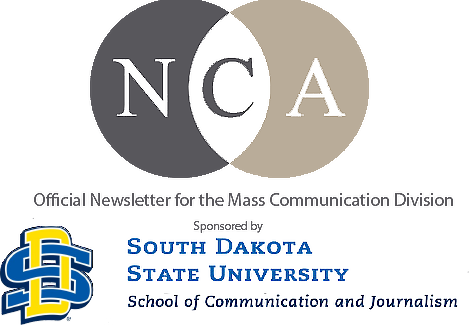
Volume: 29 Number: 2
Published three times annually by the Mass Communication Division of NCA.
Publications/Web Editor – Rocky Dailey, South Dakota State University
Welcome from the Chair – Editor’s Note – Announcements – Scholar Chat– Division Officers – Gatekeeper Archives
I hope everyone is enjoying their respective summers and getting recharged for the upcoming academic year. In the desert southwest of Tucson, where I am based out of, summer always feels a bit more like winter in central Massachusetts where I grew up. Specifically, we spend most of our time indoors, there is lots of attention paid to making sure that your indoor climate is suitable, you chastise your sometimes absent-minded children about leaving exterior doors open, and going outside for extended periods requires a fair amount of forethought and preparation.
I mention this last point because I wanted a flawless segue into the remainder of this message which is going to center on the behind-the-scenes forethought and preparation that has been going on for our convention in November by the tremendously hard-working volunteers/officers of our division (mission accomplished!).
First, huge thanks to our research committee as our slate of panels and events have been set-up with the schedule of events available here. In particular, if you are being rewarded for one of your research submissions, please make sure that you put our business meeting on your personal schedule. This goes double for our top student paper award winners. Second, our nomination committee is working on identifying the next round of folks who will help guide our division in the coming years. If you would like to be part of that mission, please reach out to the chair of the nomination committee, Benjamin Smith. Lastly, our previous chair Vicki has been working on her mentoring initiative and we will be in touch before the conference about this.
In closing, please go enjoy the remainder of your summers or “winters” and I am looking forward to celebrate our scholarship and teaching in a couple of months!
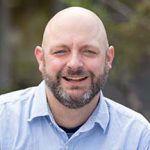
Chair
Matt Lapierre
University of Arizona
Department of Communication
1103 East University Blvd. Tucson, AZ 85721
mlapierre@arizona.edu
Thank you to all who have been active in sharing and submitting posts for the Gatekeeper newsletter and our Facebook page. With our website and social media redesign last year, we continue to see more engagement with our membership. As part of that redesign, we moved from the URL ncamass.com to ncamass.org. Right now, both URLs go to the main site, however ncamass.com site is going away. This should have no affect on our communication as we have not directed anyone to that site in over a year. I look forward to sharing content from the upcoming national convention later this fall in my last Gatekeeper as the publications and web editor.
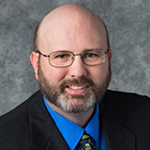
Publications & Web Editor
Rocky Dailey
South Dakota State University
School of Communication and Journalism
Yeager Hall 211, Box 2235
Brookings, SD 57007
rocky.dailey@sdstate.edu
The Mass Communication division is proposing a new program designed to pair graduate students and early career professionals with seasoned veterans in the division to help with mentorship in scholarship, teaching, and service. If you are interested in being a mentor or working with a mentor, please complete the form at the link below:
NCA Mass Communication Division Mentorship Interest
The Journal of Communication and Media Research (JCMR) is now accepting and processing full papers for its Volume 17 Number 1 issue which will be published in April 2025. The deadline for all full-manuscript submissions for this issue is Monday, 30th September 2024.
Visit https://www.jcmrjournal.org and read/download all abstracts and articles published in the journal for free.
Southern States Communication Association’s Mass Communication Division invites submissions for competitive selection for the SSCA 2025 Conference to be held in Norfolk, Virginia. We especially welcome submissions that address the convention theme, “Anchors and Anchoring Communication.” All submissions must be electronically submitted to the SSCA convention site at https://www.xcdsystem.com/ssca/member. For the paper to be assigned for review, please follow all of the instructions on the convention site.
Proposals are sought for the 6th edition of Race/Gender/Class/Media (Routledge), edited by Rebecca Ann Lind , University of Illinois at Chicago. This reader contains upwards of 50 relatively short, tightly-written, good-quality research reports. Seeking the same wide range of content as in prior editions, preferably focusing on contemporary media content. Contributors who meet deadlines will receive $100 payment upon publication. Full information about the proposals is available at http://go.uic.edu/rgcm, which is also the submission site.
The Department of Communication in the College of Communication and Information at the University of Kentucky seeks applications for an Assistant Professor position with an emphasis in Sport Communication. This is a regular title series, tenure-eligible, 9-month position, with appointment at the rank of Assistant Professor. Tenure-eligible means candidates must first meet the prescribed criteria per Administrative Regulation 2:2-1 and statements of evidence to be granted tenure. The anticipated start date is August 15th, 2025. We are looking for someone who is passionate about sport communication and ready to join our dynamic and collaborative team. Apply by September 12, 2024, for full consideration and see this link for further details.
Application Deadline: Open Until Filled. Review of applications starts September 3, 2024.
The Bob Schieffer College of Communication at Texas Christian University (TCU) in Fort Worth, Texas, invites applications for a full-time, on-campus, in-person tenure-track assistant or associate professor in its Department of Communication Studies or its Department of Strategic Communication beginning in January 2025 (preferred) or August 2025. Candidates must possess a Ph.D. in Communication Studies or Strategic Communication (e.g., advertising or public relations) and provide evidence of skilled teaching and peer-reviewed scholarship.
Applications must be submitted electronically through the TCU HR system.
All questions regarding the application process should be directed to hrtalentacquisition@tcu.edu or 817-257-7790. Review of applications begins September 3 and will continue until the position is filled.
Baylor University seeks to fill two Full-Time Lecturer positions within the Department of Communication. These appointments are renewable full-time, benefits-eligible, teaching-focused positions with a 6-year promotion path to Senior Lecturer for successful candidates and a 12-year renewable promotion path to Teaching Professor for highly successful candidates. The start date for these positions is August 2025.
Please visit these links for more information about the College of Arts and Sciences and the Department of Communication.
MIT’s Comparative Media Studies/Writing section invites applications for two tenure-track Assistant Professor of Media Studies positions with an anticipated start date of July 1, 2025. These positions are part of a cohort hire with a concurrent search for a tenured professor (the latter will open for applications August 1).
Applications must include a cover letter including a description of research plans and teaching interests, curriculum vitae, up to three relevant publications or a portfolio, and three references (of whom letters may be requested at a later stage). Closing date: August 30, 2024. For search updates and FAQ, see https://cmsw.mit.edu/cms-cohort-search-2024/. Questions may be addressed to the Search Committee Chair, Prof. Paul Roquet.
The Department of Advertising and Public Relations, housed in the College of Communication and Information Sciences (C&IS) at The University of Alabama, invites applications for a nine-month tenure-track faculty appointment at the rank of assistant professor in public relations beginning in August 2025.
The ideal candidate will have expertise in corporate social responsibility, corporate social advocacy, public interest communications, crisis communication, and/or other related areas. Candidates applying for this position should be able to teach some of the following courses: public relations writing, public relations campaigns, public relations management, introduction to audience analysis, introduction to channels and messaging, and specialized courses in the candidate’s areas of interest.
To apply, go to http://careers.ua.edu/cw/en-us/job/524220.
Questions regarding the search should be directed to the search chair, Dr. Eyun-Jung Ki at ki@apr.ua.edu.
The University of North Dakota made a significant investment in the Department of Communication to revive digital journalism education as part of its strategic initiatives. The Department launched a new B.A. in Journalism program in fall 2024 where its comprehensive curriculum covering community journalism, multimedia reporting and storytelling, data-driven storytelling, and sports journalism and broadcasting is the first of its kind in the State of North Dakota. Moreover, with a historically strong collaborative relationship with media organizations across the state and a prominent journalism alumni base, we are committed to raising the next generation of journalists and digital storytellers who can serve their communities.
To Apply go to https://careers.und.edu/jobs/assistant-professor-of-communication-tenure-track-grand-forks-north-dakota-united-states
To assure full consideration, applications must be received by September 30, 2024, and include the following materials:
• Letter of application
• Curriculum vitae
• List of at least three references (including contact information)
Position is open until filled. Please note that official transcripts from the highest educational institution must be provided upon hire.
Questions can be directed to the Department Chair, Soojung Kim, at soojung.kim@und.edu.

Scott Libin is a senior fellow at the University of Minnesota Hubbard School of Journalism and Mass Communication. Libin specializes in broadcast and digital journalism, leadership skills and ethical decision-making. Before joining the University of Minnesota faculty, he served as vice president of news and content at Internet Broadcasting. Scott has been news director at WCCO-TV and KSTP-TV in the Twin Cities, as well as WGHP-TV, in the Greensboro, N.C., market. Scott spent seven years on the resident faculty of The Poynter Institute, a school for journalists in St. Petersburg, Florida. He also chairs the Hubbard School of Journalism’s Diversity Committee.
SL: Broadcast news certainly has lost most of the glamorous appeal it held for my generation. Gen Z famously gets its news, to the extent that it consumes any news, elsewhere — mostly via social media. So these days, for the first time in my career, there are more good jobs in television and even radio news than there are well qualified people to fill those jobs.
Part of the problem is pay. There has been some improvement over the past several years, but much more is needed. News didn’t pay well for a long time because it didn’t have to. Entry level journalists were so motivated by the mission that they would work for less than they could make in retail. That is no longer the case. And they now expect some semblance of work-life balance, too. They aren’t willing to sacrifice everything to make deadline and beat the competition.
SL: I’m still surprised by the amount of time I need to spend helping students develop interpersonal communication skills. Many don’t feel comfortable talking to strangers, making appropriate eye contact, introducing themselves, explaining what they are working on and what they want from sources. I believe a lot of that is due to the inordinate amount of time they have spent on screens, mostly phones, during adolescence. That has come at the expense of experience with in-person, face-to-face communication. As a result, they would rather send a text message and wait for a response than make cold calls or go knock on doors. The pandemic only aggravated this, but the problem was apparent even before that.
Another big challenge is helping students understand the critical difference between journalism and other genres of mass communication such as advertising, public relations and entertainment. Those are very valid, valuable forms of content, but they are not the same as journalism and should not be conflated. A related issue: Many people, including students, don’t understand that their phone is not a source, it’s a device. Social media apps are not sources, either, they are platforms or channels. Consumers of content — and certainly journalists — need to understand the distinction. A TikTok post might be credible if it originated with The New York Times, but not if it came from some guy just making stuff up. Media literacy is a huge issue.
SL: I have enormous respect for my research-oriented colleagues, and I learn a lot from them. However, until I entered teaching full time, nobody ever asked or cared about my graduate degree. The people who hired me as a reporter, anchor or news manager wanted to know what I had actually done and what I could do for them. I think it’s important that students have the benefit of classes with serious scholars but also with those who have significant experience in the field as working journalists. I also think internships, practicum classes and other opportunities to immerse themselves in professional settings are essential experiences.
SL: At Poynter, I learned that I love teaching, and I had the benefit of working with highly motivated, self-selected, mid-career professionals. They were all there because they wanted to be. They didn’t expect grades and were grateful to have a few days away from the newsroom in order to get back in touch with the reasons they became journalists — as well as to learn from others from around the country. They all brought a tremendous amount of firsthand experience and insight. Some also brought excuses: why their markets were different, why new ideas wouldn’t work in their newsrooms, why their bosses would never permit them to try new approaches, etc.
I don’t get that from students. They are blank slates with original ideas and little if any cynicism. That’s incredibly refreshing — and a daunting responsibility. I feel a great obligation to prepare them for the real world they will work in, not the one I remember fondly from years ago. Many students have no idea of what working full time in a deadline-driven business is like. Some are accustomed to “flexible deadlines,” an oxymoron I do not use in my classes. Too many think attendance is optional, punctuality is overrated, and that college is the busiest, most stressful time of life. Most reconsider that point of view soon after graduation.
SL: I never want to scare any student away from journalism. I believe it’s still essential to democracy and a great way to make a living. But I do address very directly that it is quite demanding and not for those who feel they must be loved by everyone. We talk a lot in class about normalizing rejection, that reporters may have to stop 10 or 20 people on the street before someone agrees to talk to them, and that those who decline won’t all be kind about it. The work really isn’t for everybody, and college is probably the best place to come to terms with that.
On the other hand, I truly feel journalism has never been more important, because there is so much misinformation and disinformation competing for the public’s attention.
SL:I n general, they are far less willing to work long, irregular hours, to be called in during scheduled time off or to do what they consider “working off the clock,” which can mean just keeping up with the news between shifts. Some don’t feel they should be expected to come to work with a story idea ready to pitch — unless they have been given plenty of time the previous day to prepare for that. One student this past spring told me her top criterion in choosing a job — above pay, duties, geography, relationship with the boss, etc. — was that she not be called after work “at 6 o’clock at night.” I asked her if she was planning to work an early morning shift, because if you start work at 3 or 4 a.m., a 6 p.m. call can be a real problem. No, she was looking for a 9-5 day shift. It didn’t seem to occur to her that most stations have newscasts at 6 p.m.
Obviously, a life in news might not be the best choice for such a person — and it’s good that she’s identifying her priorities early in the process.
SL: Apart from the vastly different job market, which I’ve already addressed, I think the biggest change is this: When I got my first full-time job in news, I was made to feel that I was incredibly lucky to be there, and that I could easily be replaced at any time. My opinions and ideas were not highly sought after, to say the least. I got the clear message that maybe once I had a few years of experience, my input would be of some value.
Today, newsrooms are so desperate to improve their demographics that they look to the youngest people in the room and ask, essentially, “What does the future hold? How can we attract your generation?” That’s a lot of pressure to put on recent grads, who actually have no idea what they will want or need in the way of news in 10 or 20 years.
The news business has gone from outright arrogance, which was definitely the prevailing attitude when I studied journalism, to desperation and sometimes even to pandering. That sounds pessimistic, and I really am not, but I do think the pendulum has to swing back a bit. In fact, I think that has begun to happen.

Chair
Matt Lapierre
University of Arizona
Department of Communication
1103 East University Blvd. Tucson, AZ 85721
mlapierre@arizona.edu
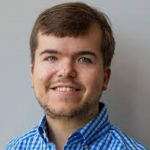
Vice-Chair
Colin Kearney
Hampton University
School of Liberal Arts & Education – Communication
262 Armstrong Hall
Hampton, VA 23669
colin.kearney@hamptonu.edu
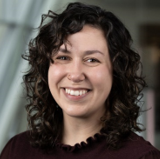
Vice Chair-Elect
Cassandra Alexopoulos
University of Massachusett- Boston
100 William T. Morrissey Blvd.
Boston, MA 02125
c.alexopoulos@umb.edu
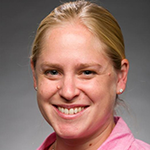
Past Chair
Veronica Hefner
St. Mary’s College – California
School of Liberal Arts – Communication
105J Sichel, Moraga, CA 94575
vh10@stmarys-ca.edu
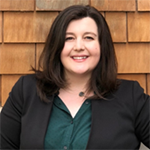
Secretary
Sofia Rhea
University of California, Davis
Department of Communication
Kerr Hall 154, Davis, CA 95616
vrhea@ucdavis.edu
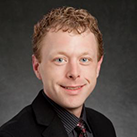
Secretary-Elect
Christopher Josey
University of Missouri
College of Arts and Science Communication
212 Switzler Hall
joseyc@missouri.edu

Publications & Web Editor
Rocky Dailey
South Dakota State University
School of Communication and Journalism
Yeager Hall 211, Box 2235
Brookings, SD 57007
rocky.dailey@sdstate.edu
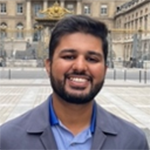
Graduate Student Rep.
Muhammad Rasul
University of California, Davis
Department of Communication
Kerr Hall 171, Davis, CA 95616
merasul@ucdavis.edu
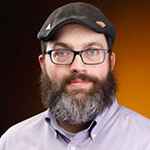
Ad-Hoc Appointment – Group Parliamentarian
Shane Tilton
Ohio Northern University
Department of Communication
Freed PAC 137
Ada, OH 45810
s-tilton@onu.edu
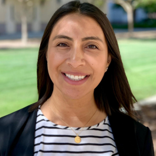
Graduate Student Rep. – Elect
Nancy Molina-Rogers
University of California – Santa Barbara
Department of Communication
4005 Social Sciences & Media Studies
UC Santa Barbara 93106-4020
nancymolina-rogers@ucsb.edu
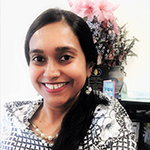
IDEA Representative
Sumana Chattopadhyay
Marquette University
Diederich College of Communication
Johnson Hall 404F
Milwaukee, WI 53233
sumana.chattopadhyay@marquette.edu

Committee Chair
David Stamps
Bentley University
175 Forest Street
Waltham, MA 02452
dstamps@bentley.edu
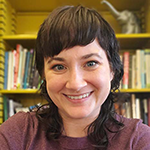
First Vice-Chair
Hilary Gamble
Auburn University – Montgomery
Communication & Theatre
7430 East Drive
Montgomery, AL 36117
hgamble@aum.edu
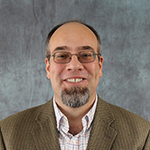
Second Vice-Chair
Laramie Taylor
University of California-Davis
Communication Department
7430 East Drive
396 Ker Hall, Davis, CA 95616
lartaylor@ucdavis.edu
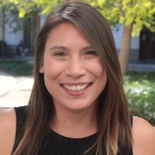
Second Vice-Chair – Elect
Debora D. Pérez Torres
California State University, San Bernardino
Department of Communication Studies
5500 University Parkway
San Bernardino, CA 92407
debora.pereztorres@csusb.edu

Committee Chair
Benjamin K. Smith
California State University East Bay
Department of Communication
3011 Meiklejohn Hall
Hayward, CA 94542
benjamin.smith@csueastbay.edu
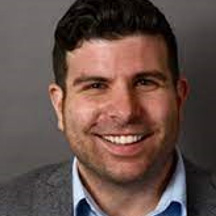
Vice Chair
Brandon Miller
Department of Communication
University of Massachusetts Boston
Wheatley Hall, Floor 6, Room 103
Boston, MA 02125
Brandon.Miller@umb.edu
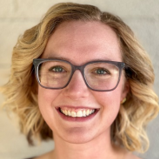
Vice Chair-Elect
Leah Dajches
Donald P. Bellisario College of Communication
Penn State
Carnegie 011
lud310@psu.edu
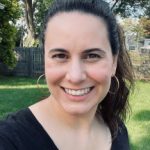
Legislative Assembly
Valerie Kretz
St. Norbert College
Communication and Media Studies
100 Grant Street, Boyle Hall 352
De Pere, WI 54115
valerie.kretz@snc.edu
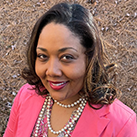
Nominating Committee
Q. McElroy
Brenau University
College of Business and Communication
500 Washington St. SE
Gainesville, GA 30501
qmcelroy@tiger.brenau.edu